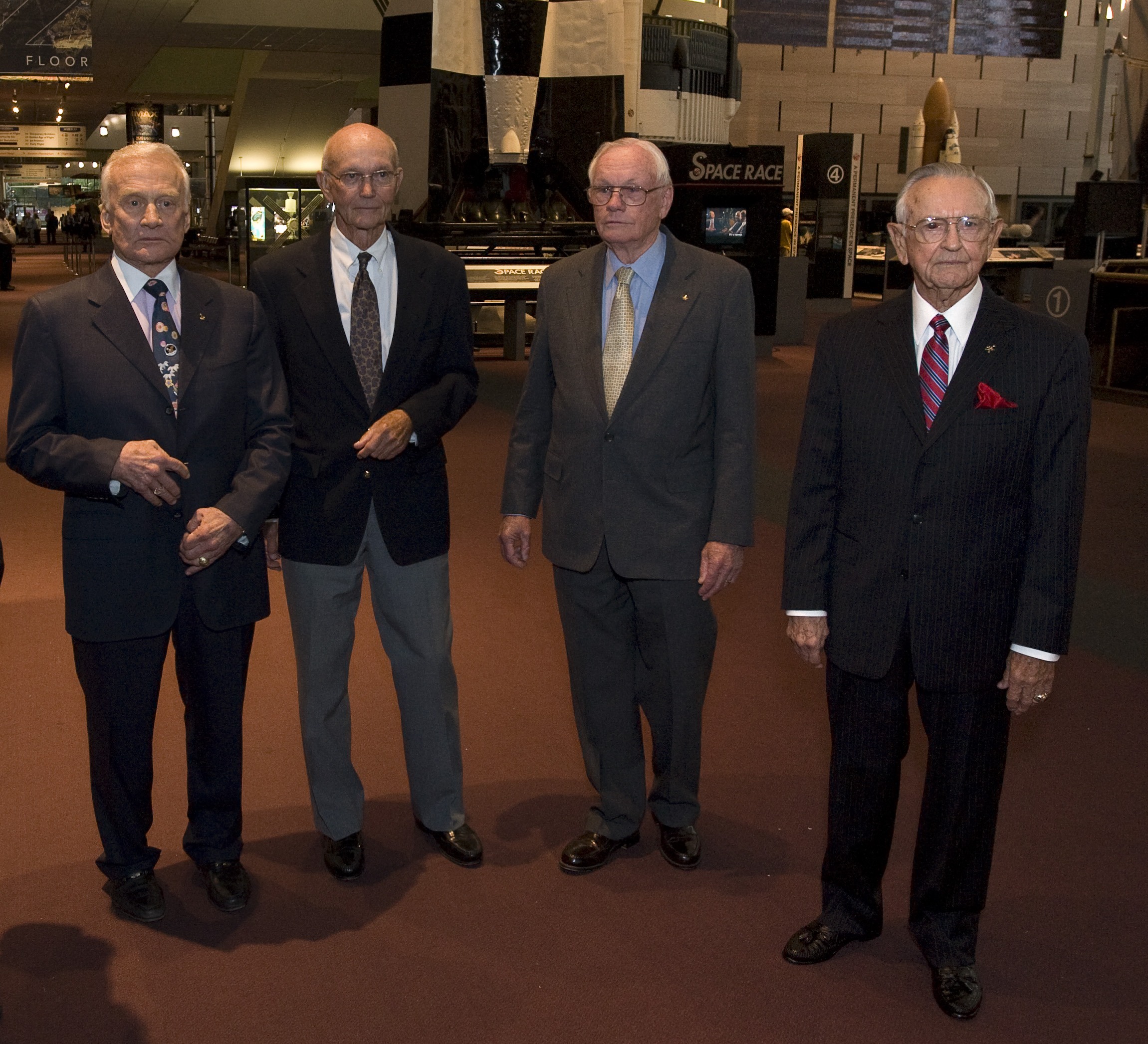
On the eve of the fortieth anniversary of the first human landing on the moon, Apollo 11 crew members Buzz Aldrin, left, Michael Collins, and Neil Armstrong and NASA Mission Control creator Chris Kraft, right, during their visit to the National Air and Space Museum on July 19, 2009.
Credit: NASA/Getty Images
On the eve of the fortieth anniversary of the first human landing on the moon, Apollo 11 crew members Buzz Aldrin, left, Michael Collins, and Neil Armstrong and NASA Mission Control creator Chris Kraft, right, during their visit to the National Air and Space Museum on July 19, 2009.
Credit: NASA/Getty Images
Armed with these bleak options, Frosch returned to Washington. Some time later he would meet with Carter, not expecting a positive response, as the president had never been a close friend of the space program. But Carter, according to Kraft, had just returned from the Strategic Arms Limitation Talks (SALT) in Vienna, and had spoken with Soviet leader Leonid Brezhnev about how the United States could keep the shuttle flying continuously over Moscow. to ensure that they adhered to the agreements.
So when Frosch went to the White House to meet with the president and said NASA didn't have the money to finish the space shuttle, the administrator got an answer he didn't expect: “How much do you need?”
With this, Jimmy Carter saved the space shuttle, Kraft believes. Without additions for fiscal years 1979 and 1980, the shuttle would never have flown, at least not as the iconic vehicle that would eventually fly 135 missions and 355 individual pilots into space. It took several flights as far as 400 miles above the planet before it was retired five years ago this week. “That was the first additional information NASA had ever requested,” Kraft said. “And we got that money from Jimmy Carter.”
As I left Kraft's house that late spring afternoon, I remember wondering if this could really be true. Could Jimmy Carter of all people be the savior of the shuttle? All because he had bragged to the Soviets about the shuttle's capabilities and therefore didn't want to show weakness? This Cold War mystery is now almost forty years in the past, but most of the key players are still alive. So I started asking questions.
Carter's apathy towards space
At the root of my skepticism was this simple fact: Jimmy Carter was not a good friend of the space program or, at least initially, of the shuttle. Less than five months after becoming president, on June 9, 1977, Carter wrote the following in his White House Diary: “We continued with our budget meetings. It is clear that the space shuttle is just a fabrication to keep NASA alive, and that no real need for the space shuttle was identified before the massive construction program began.”

